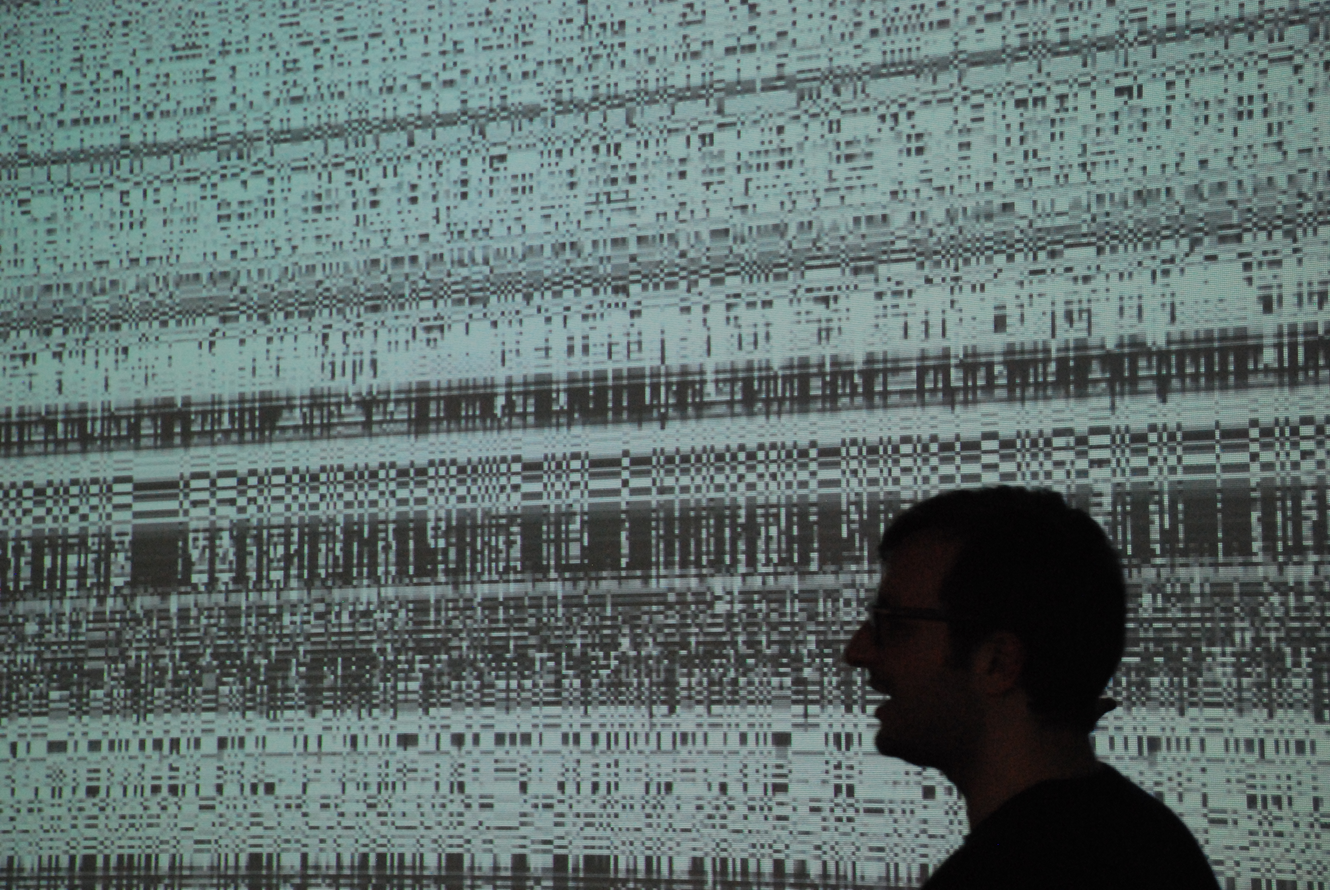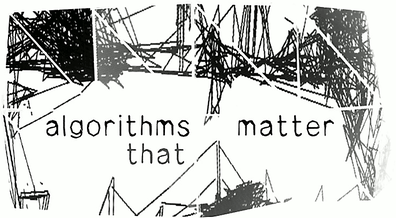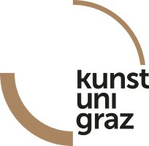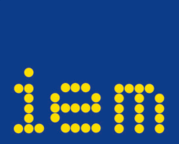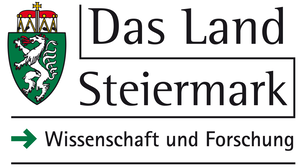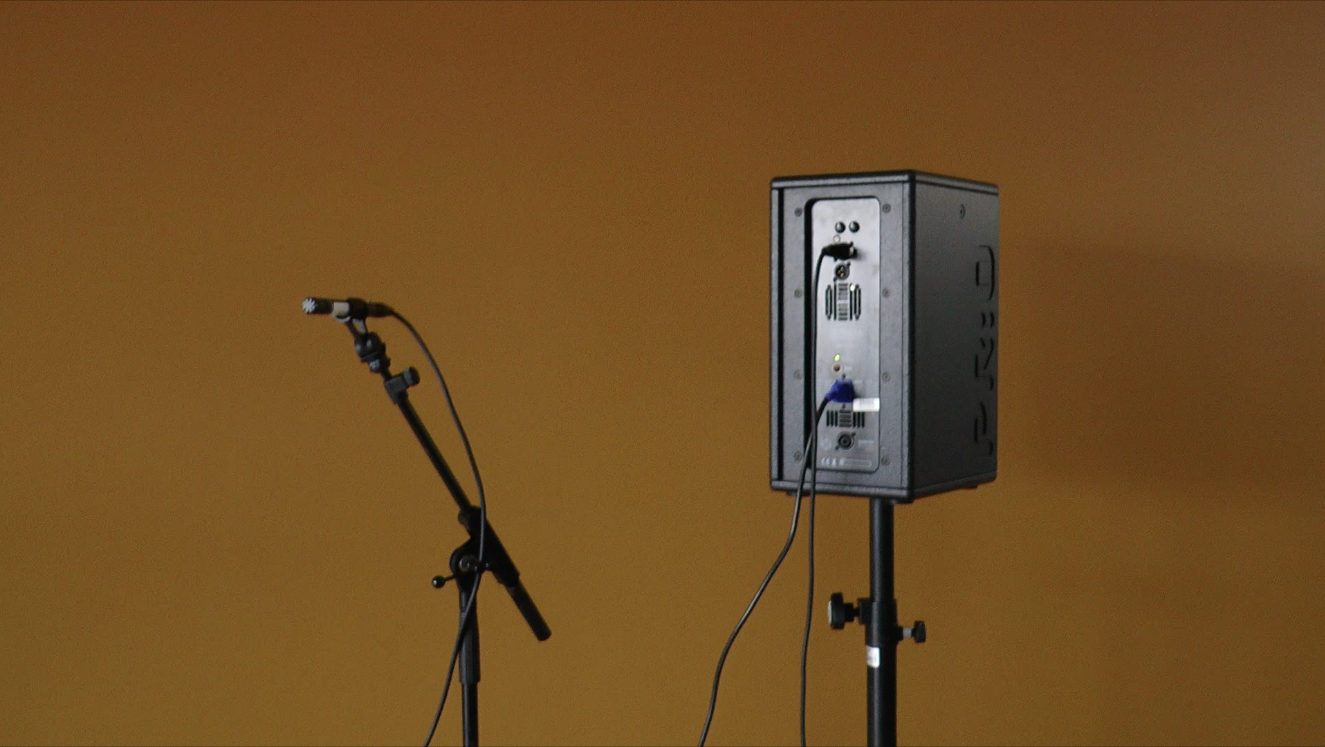Almat's methodology is based on iterative reconfiguration. A configuration encompasses the members of the team, Hanns Holger Rutz and David Pirrò, an invited guest artist along with a proposal within which she or he works, a "machinery", including two software systems developed by Rutz (SoundProcesses) and Pirrò (rattle), and possibly more systems brought into the experiment by the guest artists, which we aim to couple and to explore from different perspectives. An iteration takes the form of an online preparation phase, in which the core team and the guest artist engage in a dialogue about their practice and their relation to Almat, as well as the specific preparation of a two months residency period, in which algorithmic sound studies are developed in situ at the IEM in Graz.
The fourth iteration is conducted with Berlin-based researcher and composer of instrumental and electronic music Luc Döbereiner. This research catalogue entry documents our work process.
{function: contextual, keywords: methodology}
{kind: footer}
The iteration with Luc Döbereiner was embedded in Algorithms that Matter (ALMAT). ALMAT is a three-year project running from 2017 to 2020, within the framework of the Austrian Science Fund (FWF) – PEEK AR 403-GBL – and funded by the Austrian National Foundation for Research, Technology and Development (FTE) and by the State of Styria. It is hosted by the Institute of Electronic Music and Acoustics (IEM) at the University of Music and Performing Arts Graz.
Luc's work is concerned with compositional models and explores the relations of materiality and ideality of sound in musical composition. Through his practice he aims at investigating the role of contingency in music composition and at understanding how form can emerge through relations.
After a first coversation with the ALMAT team some common interests emerged that became "gravitational points" for the residency period. These topics were researched through an iterative method, implementing the same ideas in different languages, media and formats, and observing which new forms and thoughts would arise from this act of repetition. Each iteration highlights different aspects and provides an altered access to the phenomenon under consideration, as highlighted by Luc when introducing his work on synchronization, one of the main themes of the residency:
"We are thinking of a multiplicity of formats. We are interested in the phenomenon of synchronisation itself, but we are also interested in that as a means of exploring potentials of materials, spaces, media and situations. So it's both an object of our project, but also a means of our project. We are exploring that in a variety of different formats, in a variety of different formulations or articulations. We have implemented these types of algorithms in a couple of different programming languages, with very different approaches, real-time systems, visualizations, sound synthesis and so on, and we see what that tells us about that algorithm, about that model, but also what it tells us about that type of language, that type of concrete concept. [talk at Orpheus Institute]"
{function: contextual, keywords: [_, methodology, synthesis, synchronization]}
